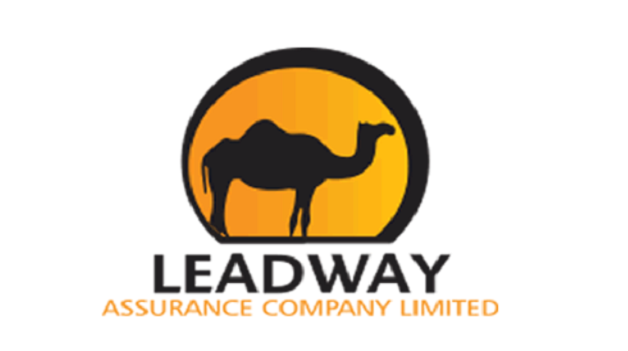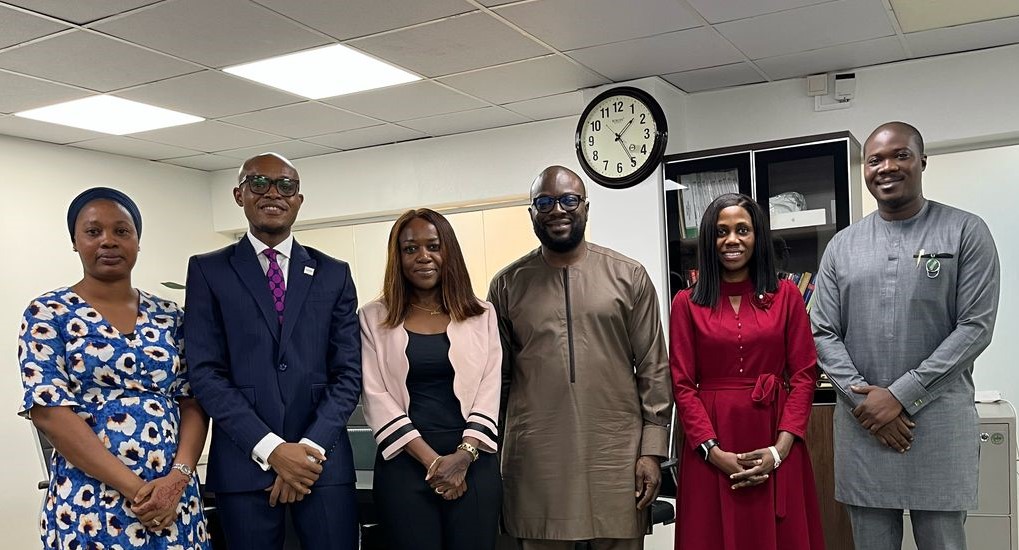E-Financial
MasterCard Takes Cashless, E-Payment Messages to “Restaurant Week”

MasterCard, a multinational financial services corporation, said it is delighted with the efforts of the Central Bank of Nigeria and the financial institutions in ensuring a topnotch e-payment system in Nigeria.
Speaking to Nigeria CommunicationsWeek on the commencement of first MasterCard Restaurant Week presented by Lost in Lagos, Omokehinde Ojomuyide, vice president and Area Business Head, MasterCard West Africa, said that the Company’s participation was born out of desire to give its card holders and food-lovers, a priceless treat and promote cashless policy.
Ojomuyide told Nigeria CommunicationsWeek that “Restaurant Week is a new thing in Nigeria, but not in other parts of the world. Lost in Lagos said, the State is now filled with new business activities and focused feeding us; fine dining, cool environment and good service, so we need to showcase those restaurants.
“They are partnering with 28 out of the many restaurants in Lagos to say over a 21-day period, please give people the best offer you have. So, they came to us and shared the idea and we thought it wise to do something that impact on the people positively.
“We are happy that the number of people using MasterCard in Nigeria is impressive. The growth we have heard in the past three years is a welcome development. We are seeing the transition from cash to card payments”.
Satisfied with the pace of e-payment and card system adoption she said, “I do not think MasterCard will ever be satisfied until all transactions are electronic. So, it is a journey. In fact, every country that has embraced card system of payment must have passed through this phase. Even the US and UK have been doing this for over 50 years and they still have cash in circulation. So, you will never be satisfied, because our role is to move from cash to electronic payment. It just means we are going to be in the business for a long time.
“Having said we will never be satisfied until there is no cash, I would say that the growth Nigeria has made in the past three years, considering the unique challenges you have in Nigeria, it is good. You cannot take Nigeria in isolation. You cannot expect the cashless to be 100% successful without looking at the fact that having electricity always is a basic requirement for the terminals to be operational, communication has to be topnotch. There are challenges are easing away, which is good news for the industry and the country at large. The CBN and the banks are working round the clock to ensure the cashless and card payment systems are successful”.
According to the organizers, from 1 November – 21 November 2014, MasterCard cardholders will be able to enjoy the best dining experiences that Lagos has to offer at exceptional prices.
Famous the world over, Restaurant Week is a culinary event that celebrates all the qualities that define a great restaurant: high standards in food and presentation, ambiance and service.
Held in several cities including Amsterdam, New York, Singapore, Beijing and now Lagos, Restaurant Week gives food-lovers the opportunity to dine at top restaurants at discounted set-menu prices.
MasterCard Restaurant Week will include special menus from 28 of the city’s top restaurants including Spice Route, Fusion, Bistro 7, Oje, Viceroy and Bar Campione as well as a handful of exclusive, fine dining, establishments like Izanagi, Rooftop and Medici Restaurant among others.
“MasterCard Restaurant Week will change the way people look at dining out in Lagos as it will give food-lovers the opportunity to experience new restaurants that they may have been unable to try before,” said Tannaz Bahnam, founder of Lost in Lagos. “Each of the participating restaurants is known for their excellent cuisine and service, ensuring that restaurant-goers will enjoy an unforgettable dining experience,” she says.
Over the three-week promotional period, all participating restaurants will offer a three-course set menu including a choice of appetizers, main dishes and desserts.
Diners can select from an exclusive MasterCard Restaurant Week menu at a set price starting from N4,000 for lunch, N6,000 for dinner and N10,000 for fine dining.
To redeem these offers, MasterCard cardholders need to register on MasterCard’s Priceless Africa (www.pricelessafrica.com) platform.
“Consumers in Nigeria have a strong affinity for dining out, and through MasterCard Restaurant Week, we can reward our valued cardholders by offering an unrivalled experience that not only helps them to pursue their passion for great food, but encourages a continual shift from cash to electronic payments,” explained Ojomuyide.
MasterCard launched the Priceless Africa consumer loyalty platform in Nigeria in 2013.
Dedicated to bringing consumers closer to their passions while celebrating the spirit of Africa, the popular campaign offers a collection of special discounts and rare experiences, curated just for MasterCard cardholders.
MasterCard operates the world’s fastest payments processing network, connecting consumers, financial institutions, merchants, governments and businesses in more than 210 countries and territories.
E-Financial
Leadway Partners Firm to Launch Retail Insurance Product for Women

In line with passion and aspiration of the National Insurance Commission (NAICOM) to achieve financial inclusion among Nigerians especially Nigerian women, Leadway Assurance, has partnered with Wafira Ntaba Limited a marketing firm to launch a bespoken insurance policy for Nigerian women.

The product, Leadway Plan B Insurance policy, comes in simplified and affordable packages for as low as N26,000 per quarter, broadening financial inclusion and income protection for women-led small to medium-sized enterprises and lifestyle protection for women across different social strata in Nigeria.
Speaking at the media launch of the product, Leadway ‘s Director Sales, Retail and Partnership, Kike Fischer, shed light on the market approach for the Plan B product, saying “one uniqueness of the Plan B product is in its single-wide coverage from risks and perils related to auto insurance, healthcare, personal accident, fire, burglary, life insurance and education cutting across its different product packages – SME, Corporate and Premier packages.”
Also speaking, the visioner behind the Plan B Insurance for Nigerian women, Ayona Aguilera Trimnell shared the inspiration behind the products saying, “Plan B is an idea that has been in development for 10 years.
“As I began exploring insurance products aimed at women in other countries, I recognised the need for an insurance product that promotes financial inclusion in Nigeria, specifically for women. I believed we could create something that addresses their unique concerns.
Women need to understand how insurance can alleviate their worries and the benefits of being insured. I have personally enjoyed the advantages of insurance for over fifteen years, and I believe other women should have the opportunity to experience the same benefits.”
She said both partners could simplify the benefits of the plan B insurance product to help even the uneducated, understand and be convinced to secure their future by becoming a policyholder.
According to her, it has been proven and tested that women too buy insurance, but more women need to be aware and get insured.
On the market approach for the Plan B product, she said she was confident that these products would help women of all classes in Nigeria create and protect wealth, recover from economic challenges, pursue their purposes, and lead their families with peace of mind.
E-Financial
Sage Grey Finance Partners with Bank of Industry to Empower MSMEs in Nigeria

Sage Grey Finance Limited has joined forces with the Bank of Industry to provide accessible and affordable financing solutions for Micro, Small, and Medium Enterprises (MSMEs) in Nigeria.
This partnership, announced in Lagos, aligns with the Federal Government’s MSMEs Fund and aims to bridge the $236 billion funding gap faced by small businesses, fostering economic growth and job creation.
Eligible MSMEs can access loans of up to ₦5 million at a competitive 9% annual interest rate, with loan processing completed within five working days.
The initiative also includes SME advisory services to equip businesses with tools for sustainable growth.
Executive Director Jumo Atiba emphasized the critical role of MSMEs in national development, highlighting the partnership’s potential to stimulate entrepreneurship and unlock grassroots economic potential.
This collaboration reflects Sage Grey Finance’s commitment to financial inclusion and sustainable development.
The partnership builds on Sage Grey’s history of impactful initiatives, including a $200 million gas processing plant project and youth empowerment programs.
By addressing the challenges of financial exclusion, this collaboration is set to drive inclusive economic progress across Nigeria.
E-Financial
Four Red Flags Nigerians Ignored until CBEX Crashed- DUBAWA

It has not been a pleasant week for thousands of Nigerians who have again fallen for another money scam.

According to DUBAWA, a West African independent verification and fact-checking project, several persons on various social media platforms have begun to count their losses as CBEX, a popular digital asset trading platform, reportedly wiped out over N1.3 trillion from Nigerian investors’ accounts.
The platform collapsed after funds disappeared from users’ wallets, withdrawals were postponed, and communication channels were locked.
Taiwo Owolabi, a security analyst, recently released an analysis showing how investors’ funds were diverted through funnel wallets and finally into a central wallet, which now holds a total of $857 million in USDT.
The security expert concluded that CBEX was just another Ponzi scheme.
When CBEX promised a mouth-watering 100 per cent return on crypto investments in 30 days, many Nigerians rushed to invest just like they did with the defunct MMM.
However, despite the crash, CBEX has asked some investors to pay $100 and $200 verification fees to access partial withdrawals.
Now that the chips are down, it’s time to ask: “How did we not see this coming?”
Below are four red flags about CBEX that investors ignored.
- No regulatory approval
CBEX operated without registration or approval from the Securities and Exchange Commission (SEC) or the Central Bank of Nigeria.
Still, many Nigerians invested, assuming legitimacy because the platform looked flashy. This has become a pattern, as in previous cases where Nigerians got duped, the platforms were unregistered.
SEC has since warned Nigerians against investing in unregistered online forex and digital asset platforms, saying that operating such businesses without registration is now illegal under the new Investment and Securities Act (ISA).
Lesson: Always verify a platform’s regulatory status before putting your money in.
- Anonymous founders
CBEX’s website and Application did not list identifiable owners or executives. To gain credibility, CBEX masqueraded as a crypto platform, talking about “blockchain,” “trading bots,” and “AI-powered systems.” However, it had no verifiable trades or links to legitimate crypto exchanges. It used tech jargon to mislead its users.
Lesson: Transparency is a minimum requirement. If you don’t know who runs it, don’t trust it.
- Unrealistic returns on investment, withdrawal issues
While there is no ideal return on investments (ROI), excessively high ROIs or ones that appear too good to be true are usually a call for caution.
CBEX promised investors returns of up to 100 per cent in 30 days. That looks like a classic Ponzi red flag.
As seen in the past, these kinds of returns are unsustainable, but they remain effective bait that can appeal to anyone’s greed.
At first, CBEX worked. Users were getting paid even though Owolabi claimed the platform initially used one investor’s money to pay another until it could not.
Just before the crash, many users reported delays in withdrawing their funds. CBEX blamed this on “system upgrades” and “network issues,” which is a tactic common with failing schemes.
Lesson: High, guaranteed returns are a red flag, and consistent withdrawal delays indicate that the system is drying up. That’s usually when the exit strategy begins.
- Influencer endorsements and peer pressure
The Fear Of Missing Out (FOMO) does not respect age, especially when influencers, friends, and families are involved. However, the misuse of trust through misinformation is common in fraud schemes.
CBEX’s biggest marketing weapon was social media hype and word-of-mouth pressure. The platform relied heavily on trust networks.
From WhatsApp statuses to Facebook pages and TikTok videos, CBEX grew viral through a coordinated network of testimonials. People shared real and fake proof of payment screenshots and emotional success stories.
When friends and family members innocently vouched for it, people ignored other red flags and pumped money into the scheme.
Lesson: Social proof is not due diligence. Always investigate platforms independently, even if people you trust are involved.
Conclusion
CBEX’s collapse is not new; unfortunately, it may not be the last. DUBAWA urges investors to adopt a fact-checking mindset when approached with financial opportunities. Scams thrive on ignorance and trust. Our best defence is verification, not hope.
DUBAWA is a West African independent verification and fact-checking project, initiated by the Centre for Journalism Innovation and Development (CJID) and supported by the most influential newsrooms and civic organisations in West Africa to help amplify the culture of truth in public discourse, public policy, and journalistic practice.
It has a presence in Nigeria, Ghana, Sierra Leone, Liberia and The Gambia.

 General News2 days ago
General News2 days agoWorld Bank Announces $800m Support for Nigeria’s CCT Initiative

 E-Financial2 days ago
E-Financial2 days agoFour Red Flags Nigerians Ignored until CBEX Crashed- DUBAWA
- General News2 days ago
MIT MBA Students Explore Digital Innovation at MTN Nigeria

 Telecom2 days ago
Telecom2 days agoHow Starlink Took over Africa’s Largest Internet Market

 General News2 days ago
General News2 days agoNITDA, SecDojo Forge Partnership to Strengthen Nigeria’s Cybersecurity Resilience

 Telecom1 day ago
Telecom1 day agoBanks, Telcos Mull New Billing Plans for USSD Airtime Payments

 Telecom2 days ago
Telecom2 days agoMTN Champs Lagos Continental Relays: A Celebration of Sportsmanship and Fun

 E-Business2 days ago
E-Business2 days agoInternet Society Announces Peering Fellowship




























